China (中国; Zhōngguó), officially known as the People's Republic of China (中华人民共和国 Zhōnghuá Rénmín Gònghéguó) is a huge country in Eastern Asia (about the same size as the United States of America) with the world's largest population.
With coasts on the East China Sea, Korea Bay, Yellow Sea, and South China Sea, in total it borders 14 nations. It borders Afghanistan, Pakistan (through the disputed territory of Kashmir), India, Nepal, Bhutan, Myanmar, Laos and Vietnam to the south; Tajikistan, Kazakhstan and Kyrgyzstan to the west; Russia and Mongolia to the north and North Korea to the east. This number of neighbouring states is equalled only by China's vast neighbour to the north, Russia.
This article only covers mainland China. For Hong Kong, Macau and Taiwan, please see separate articles.
The recorded history of Chinese civilization can be traced to the Yellow River valley, said to be the 'cradle of Chinese civilization'. The Xia Dynasty was the first dynasty to be described in ancient historical chronicles, though to date, no concrete proof of its existence has been found. Nevertheless, archaeological evidence has shown that at the very least, an early bronze age Chinese civilization had developed by the period described.
The Shang Dynasty, China's first historically confirmed dynasty, and the Zhou Dynasty ruled across the Yellow River basin. The Zhou adopted a decentralized system of government, in which the feudal lords ruled over their respective territories with a high degree of autonomy, even maintaining their own armies, while at the same time paying tribute to the king and recognizing him as the symbolic ruler of China. It was also the longest ruling dynasty in Chinese history, lasting about 800 years. Despite this longevity, during the second half of the Zhou period, China descended into centuries of political turmoil, with the feudal lords of numerous small fiefdoms vying for power during the Spring and Autumn Period, and later stabilized into seven large states in the Warring States period. This tumultuous period gave birth to China's greatest thinkers including Confucius, Mencius and Laozi, who made substantial contributions to Chinese thought and culture.
China was eventually unified in 221 BC by Qin Shi Huang, the 'First Emperor', and the Qin Dynastyinstituted a centralized system of government for all of China, and standardized weights and measures, Chinese characters and currency in order to create unity. Until today, the ideal of a unified and strong centralized system is still strong in Chinese thought. However, due to despotic and harsh rule, the Qin dynasty lasted for only 15 years as the Han Dynasty took over in 206BC after a period of revolt. With the invention of paper and extensive trade with the West along the Silk Road, along with relatively benevolent imperial rule, the Han was the first golden age of Chinese civilization. Ethnic Chinese consider themselves to be part of the 'Han' race till this day.
The collapse of the Han Dynasty in 220 CE led to a period of political turmoil and war known as the Three Kingdoms Period, which saw China split into the three separate states of Wei, Shu and Wu. Despite lasting for only about 60 years, it is a highly romanticised period of Chinese history. China was then briefly reunified under the Jin Dynasty, before descending into a period of division and anarchy once again. The era of division culminated with the Sui which reunified China in 581. The Sui were famous for major public works projects, such as the engineering feat of the Grand Canal, which linked Beijing in the north to Hangzhou in the south. Certain sections of the canal are still navigable today.
Bankrupted by war and excess government spending, the Sui were supplanted by the Tang Dynasty, ushering in the second golden age of Chinese civilization, marked by a flowering of Chinese poetry, Buddhism and statecraft, and also saw the development of the Imperial Examination system which attempted to select court officials by ability rather than family background. Chinatowns overseas are often known as "Street of the Tang People" (唐人街 Tángrén jiē) in Chinese. The collapse of the Tang Dynasty then saw China divided once again, until it was reunified by the Song Dynasty, this collapse was preceded by the secession and independence of Vietnam in 938 CE. The Song ruled over most of China for over 150 years before being driven south of the Huai river by the Jurchens, were they continued to rule as the Southern Song, and although militarily weak, attained a level of commercial and economic development unmatched until the West's Industrial Revolution. The Yuan (Mongol) dynasty first defeated the Jurchens, then proceeded to conquer the Song in 1279, and ruled their vast Eurasian empire from modern-day Beijing.
After defeating the Mongols, the Ming dynasty (1368-1644) re-instituted rule by ethnic Han. The Ming period was noted for trade and exploration, with Zheng He's numerous voyages to Southeast Asia, India and the Arab world. Initial contact with European traders meant China gradually reaped the fruits of the Colombian exchange, with silver pouring in by the galleon through trade with the Portuguese and Spanish. Famous buildings in Beijing, such as the Forbidden City and the Temple of Heaven, were built in this period. The last dynasty of the Qing (Manchu) dynasty (1644-1911), saw the Chinese empire grow to its current size, incorporating the western regions of Xinjiang and Tibet. The Qing dynasty fell into decay in its final years to become the 'sick man of Asia', where it was nibbled apart by Western powers. The Westerners established their own treaty ports in Guangzhou, Shanghai and Tianjin. China lost several territories to foreign powers; Hong Kong and Weihai were ceded to Britain, Taiwan and Liaodong were to Japan, parts of the North East including Dalian and parts of Outer Manchuria to Russia, while Qingdao was ceded to Germany. Shanghai was divided among China and eight different countries. In addition, China lost control of its tributaties, with Korea and the Ryukyu Islands ceded to Japan.
The two thousand-year old imperial system collapsed in 1911, where Sun Yat-Sen (孙中山, Sūn Zhōngshān) founded the Republic of China (中华民国 Zhōnghuá Mínguó). Central rule collapsed in 1916 after Yuan Shih-kai, the second president of the Republic and self-declared emperor, passed away; China descended into anarchy, with various self-serving warlords ruling over different regions of China. In 1919, student protests in Beijing gave birth to the "May Fourth Movement" (五四运动 Wǔ Sì Yùndòng), which espoused various reforms to Chinese society, such as the use of the vernacular in writing, as well as the development of science and democracy. The intellectual ferment of the May Fourth Movement gave birth to the reorganized Kuomintang (KMT) in 1919 and the Chinese Communist Party (CCP) in the French Concession in Shanghai, 1921.
After uniting much of eastern China under KMT rule in 1928, the CCP and the KMT turned on each other, with the CCP fleeing to Yan'an in Shaanxi in the epic Long March. During the period from 1922 to 1937, The eastern provinces of China grew economically under the leadership of Chiang Kai-shek and his KMT government, with marked economic expansion, industrialization and urbanization. Shanghai became a truly cosmopolitan city, as one of the world's busiest ports, and the most prosperous city in East Asia, home to millions of Chinese and 60,000 foreigners from all corners of the globe. However, underlying problems throughout the vast country side, particularly the more inland parts of the country, such as civil unrest, famines and warlord conflict, still remained.
Japan established a puppet state under the name Manchukuo in Manchuria in 1931, and invaded mainland china in 1937. After fleeing west to Chongqing, the KMT realized the urgency of the situation signed a tenuous agreement with the CCP to form a second united front against the Japanese. With the defeat of Japan in 1945, the KMT and CCP armies maneuvered for positions in north China, setting the stage for the civil war in the years to come. The civil war lasted from 1946 to 1949 and ended with the Kuomintang defeated and sent packing to Taiwan where they hoped to re-establish themselves and recapture the mainland some day.
Mao Zedong officially declared the establishment of the People's Republic of China on 1 Oct 1949. The new Communist government implemented strong measures to restore law and order and revive industrial, agricultural and commercial institutions reeling from more than a decade of war. By 1955, China's economy had returned to pre-war levels of output as factories, farms, labor unions, civil society and governance were brought under Party control. After an initial period closely hewing to the Soviet model of heavy industrialization and comprehensive central economic planning, China began to experiment with adapting Marxism to a largely agrarian society.
Massive social experiments such as the Hundred Flowers Campaign (百花运动 bǎihuā yùndòng), the Great Leap Forward (大跃进 dàyuèjìn), intended to collectivize and industrialize China quickly, and the Cultural Revolution (无产阶级文化大革命 wúchǎn jiējí wénhuà dà gémìng), aimed at changing everything by discipline, destruction of the "Four Olds," and total dedication to Mao Zedong Thought, rocked China from 1957 to 1976. The Great Leap Forward and Cultural Revolution are generally considered disastrous failures in China. During the Cultural Revolution in particular, China's cultural heritage, including monuments, temples, historical artifacts, and works of literature sustained catastrophic damage at the hands of Red Guard factions. It was only due to the intervention of Zhou Enlai and the PLA that major sites, such as the Potala Palace, the Mogao Caves, and the Forbidden City escaped destruction during the Cultural Revolution.
Mao Zedong died in 1976, and in 1978, Deng Xiaoping became China's paramount leader. Deng and his lieutenants gradually introduced market-oriented reforms and decentralized economic decision making. Economic output quadrupled by 2000 and continues to grow by 8-10% per year, but huge problems remain — bouts of serious inflation, regional income inequality, human rights abuses, ethnic unrest, massive pollution, rural poverty and corruption. While the larger cities near the coast like Beijing, Shanghai and Guangzhou have grown to become rich and modern, many of the more inland and rural parts of the country remain poor and underdeveloped. The former General Secretary of the Communist Party, Hu Jintao, has proclaimed a policy for a "Harmonious Society" (和谐社会 héxié shèhuì) which promises to restore balanced economic growth and channel investment and prosperity into China's central and western provinces, which have been largely left behind in the post-1978 economic boom. The current General Secretary of the Communist Party, Xi Jinping and Premier Li Keqiang, have pursued an ambitious policy of social reform, particularly income redistribution, poverty relief, and environmental improvements. Furthermore, a highly ambitious crackdown on corruption started by the previous administration has only been expanded. Growth in China has finally slowed down in recent years and seems to be leveling off.
Private guided tours elaborately designed by the largest online China travel agency and our expert operators to cater to your budget and specific preference.
Why Choose Us?
- No Shopping Stops
- No Hidden Charges
- Lowest Price Guarantee
- Expert Guide & Driver
- Well-located Hotels
- A La Carte Meals
- Chinese Family Visit
- Free Cooking Class
- 24/7 Customer Service
Comprehensive China travel information on destinations, attractions, transportation, weather, maps to help you achieve an unforgettable trip!
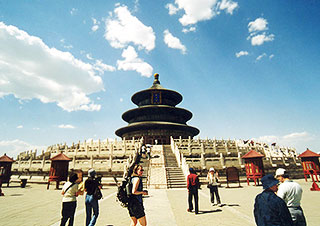
Follow us to explore the popular attractions and discover the essence of the heritage left by nature and history to this ancient oriental realm.
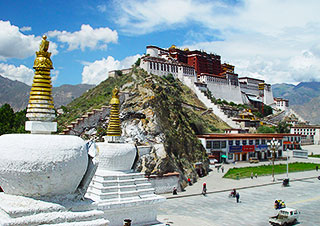
Over 5,000 years of fascinating history endows China with a profound culture, penetrating in every aspect of people's life…
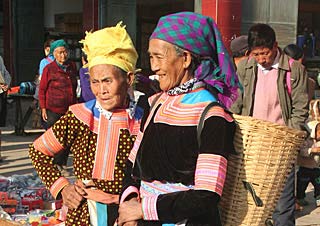

Real time weather forecast and detailed climate data by month of major Chinese cities.
Can Malaysia passport holder qualified for 5 days Shenzhen VOA? I am Malaysian living in Hong Kong now. Am I qualified for 5 days VOA?
Hi, Tan, you can apply for the 5 days VOA. Don't worry.
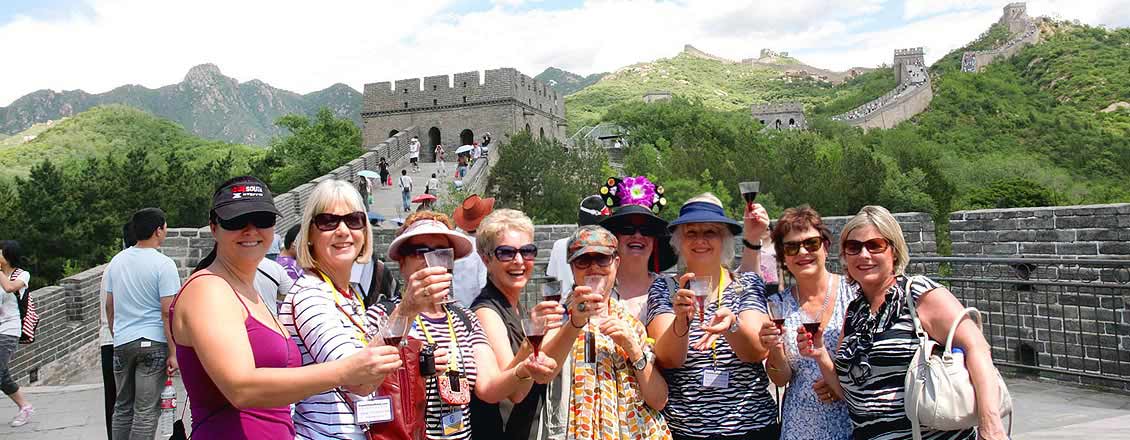
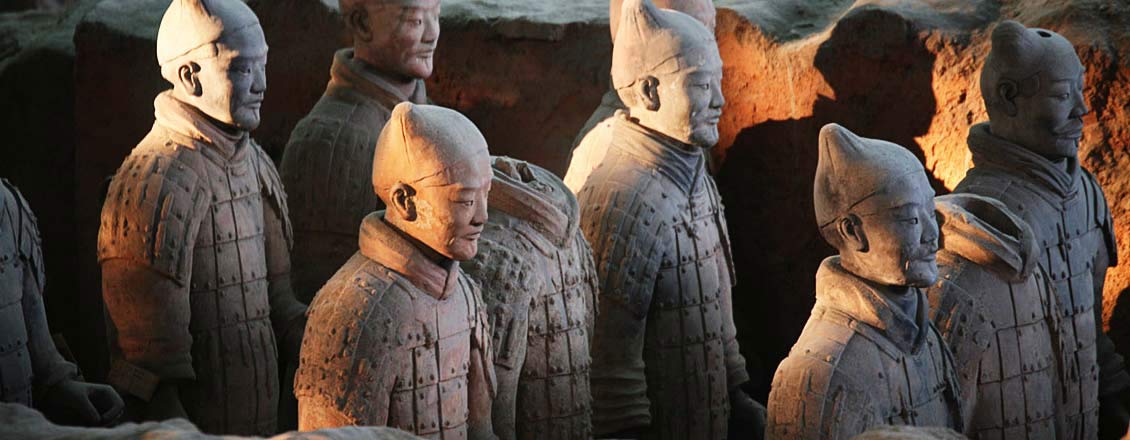
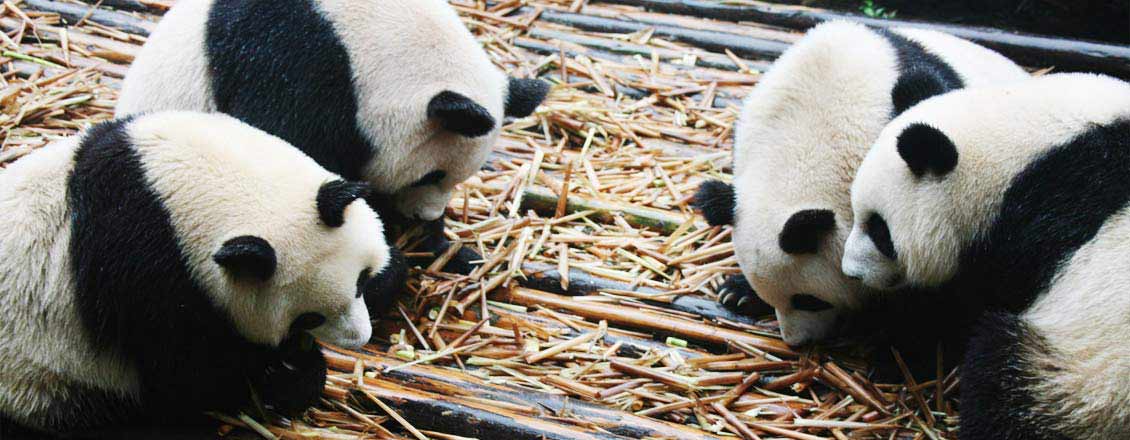
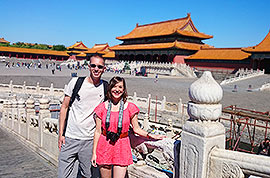
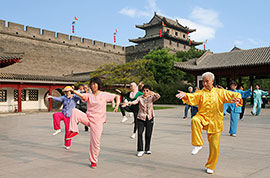
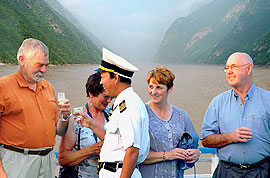
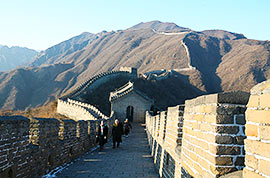
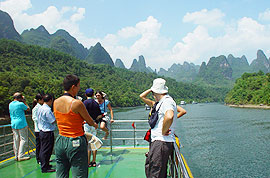
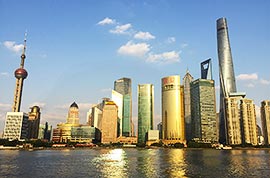



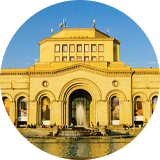
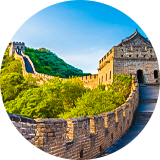
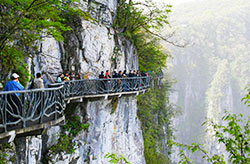




2 comments:
lhasa things to do
Generally speaking, tourists traveling to Tibet will visit Lhasa, a capital city of Tibet. In Lhasa, you can not only enjoy your Tibet tour but also the delicious Tibetan food. Lhasa food brings together the essence of Tibetan food, rich and diverse. You can taste a lot of authentic food at the Lhasa restaurants near Jokhang Temple and around Barkhor Street. Of course, you can also have western food, Sichuan food, and some foreign dishes here. However, there are top 10 Tibetan foods in Lhasa that you can’t miss when you visit Lhasa.
I have never been this country. looks like a very interesting visit
Post a Comment